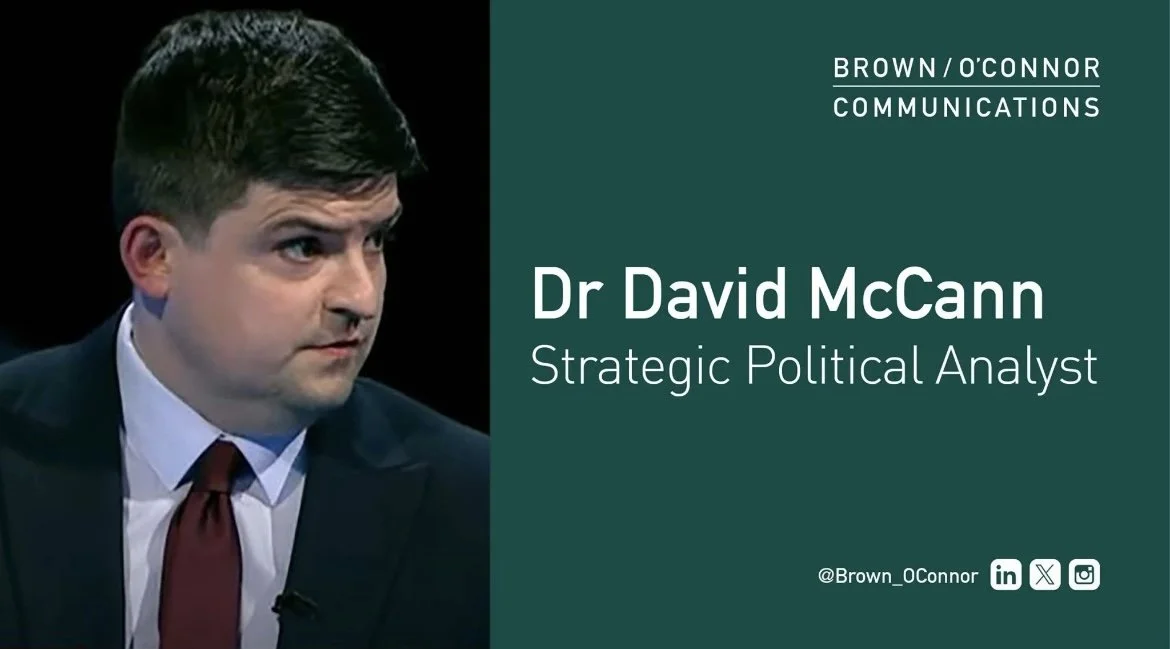By David McCann, Strategic Political Analyst at Brown O’Connor Public Affairs
Since the Executive returned in February 2024, there has been a focus on skills issues within the Northern Ireland economy. This month, the Department for the Economy published its Skills Action Plan, which set out agreed actions that the department will focus on over the next three years.
The plan places heavy emphasis on collaboration with industry and educational institutions, as well as on enhancing existing education and training programmes in Northern Ireland.
Different sectors that engage with government departments have “consultation and strategy fatigue.” The consultation documents are produced, people within a particular sector take their time to respond, a strategy is developed, and when the rubber hits the road — years later — there is sometimes little to show for it.
The Public Accounts Committee produced a report in May 2025 outlining the challenges that remain regarding skills in Northern Ireland, highlighting that unless we change our approach, we are in danger of the same result. The report highlights that we need greater focus and pace to deliver on the goals of the skills strategy, and a stronger evidence base to evaluate whether the more than £400 million we are spending in this area is delivering value for money.
Banking Successes
Knowing what we have done well in the past is just as important as identifying mistakes. If we do not have a grasp of either, that will ensure that successes are not adequately appreciated and failures are not corrected.
A success worth highlighting is the establishment of the Skills Council in 2023, which has helped bring together the various sectors directly involved in delivering improved skills across Northern Ireland. In a place where we all too often work in silos, bodies such as this are critical for bringing together diverse voices who do not routinely engage with one another.
Learning from other places
A consideration for an Economy Minister, after 2027, is how a body such as this can be enhanced to take a more leading role in this area and mirror more closely the approach adopted in the Republic through the National Skills Council. Then we can further decentralise our skills approach away from Stormont towards more local decision-making. There is an urgent need to make the skills landscape easier to understand and more accessible to businesses.
This leads to another area where the Republic is doing much better than we are: investment in and support for further education. By further education, I do not simply mean investment in our universities. I mean, supporting the many strong further education colleges we have dotted across local communities in Northern Ireland. The Productivity Institute has highlighted the significant economic and civic value that these colleges have in bridging skills gaps in other parts of the UK. Supporting these institutions and giving them the freedom to provide tailored programmes that address skills shortages, you can achieve tangible improvements in economic outcomes.
In essence, further education colleges need to be at the centre of any skills eco system, not something on the sidelines.
For Northern Ireland, our skills shortages are holding back our economic development. Mixed with a silo mentality in parts of our government, a lack of accessibility, and a lack of focus, we are not capitalising on our strengths. Looking toward some of the best practices being identified in the Republic of Ireland and other parts of the UK, there is a credible pathway forward.
Part of this will need politicians to see new approaches and be prepared to let relevant institutions the freedom to get on with it. This approach works right on our doorstep; it will work here, too. Make it easy for businesses to engage, listen to their needs, and then provide the resources to our further and higher education so that graduates have the right skill set we so desperately need.

